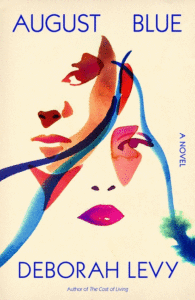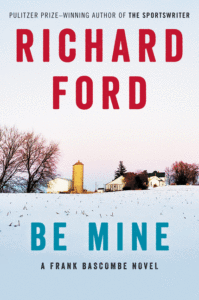
June’s Best Reviewed Fiction
Featuring new titles by Lorrie Moore, Jenny Erpenbeck, Richard Ford, and More

Lorrie Moore’s I Am Homeless If This Is Not My Home, Jenny Erpenbeck’s Kairos, and Richard Ford’s Be Mine, all feature among the best reviewed fiction titles of the month.
Brought to you by Book Marks, Lit Hub’s “Rotten Tomatoes for books.”
*
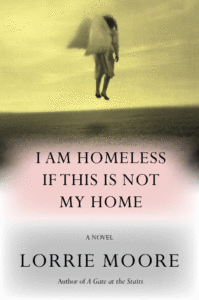
1. I Am Homeless If This Is Not My Home by Lorrie Moore
(Knopf)
16 Rave • 7 Positive • 5 Mixed • 1 Pan
Read an interview with Lorrie Moore here
“Moore excels in…[the] neurotic but intimate conversations that go nowhere, and the scenes in the hospice are viscerally done … Moore shows that grief and ghosts can be written about persuasively, and wittily, without turning a novel into a horror story … A triumph of tone and, ultimately, of the imagination. For Moore, death doesn’t necessarily mark the end of a story.”
–Abhrajyoti Chakraborty (The Guardian)
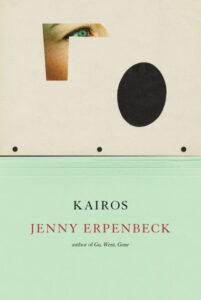
2. Kairos by Jenny Erpenbeck
(New Directions)
14 Rave • 7 Positive
Read an excerpt from Kairos here
“A cathartic leak of a novel, a beautiful bummer, and the floodgates open early … If Kairos were only a tear-jerker, there might not be much more to say about it. But Erpenbeck, a German writer born in 1967 whose work has come sharply to the attention of English-language readers over the past decade, is among the most sophisticated and powerful novelists we have. Clinging to the undercarriage of her sentences, like fugitives, are intimations of Germany’s politics, history and cultural memory … She is writing more closely to her own unconscious … I don’t generally read the books I review twice, but this one I did … Profound and moving.”
–Dwight Garner (The New York Times)
3. August Blue by Deborah Levy
(Farrar, Straus and Giroux)
10 Rave • 4 Positive • 2 Mixed
“Ms. Levy rewards close readers by packing her sardine-can-slim novels with tight connections … August Blue, which builds to a moving climax, is more emotionally accessible than Ms. Levy’s previous novels. But it too encompasses the cerebral and the sentimental, realism and surrealism, love and loss, the drive to create art—and the ambiguities of human relations.”
–Heller McAlpin (The Wall Street Journal)
4. Be Mine by Richard Ford
(Ecco)
9 Rave • 3 Positive • 1 Mixed • 2 Pan
“Ford hides himself away and lets the inescapably, unstoppably logocentric Frank tell his tale in his own distinctive, discursive voice, a roving ‘I’ addicted to description and speculation. Every Bascombe book is full-on Frank … If you’re up for a dazzling, acutely painful 342-page monologue from a 74-year-old whose favorite shoe is a Weejun, who likes to rhapsodize about suburbia, and who is right now preoccupied with an unspooling tragedy on a road trip through a tranche of Trump country, Be Mine is just the ticket … The astonishing core of Be Mine is the barbed, tender, despairing bond between father and son … Every sentence is considered, yet many look like they’re about to fall apart in their devious careening.”
–Adam Begley (The Atlantic)
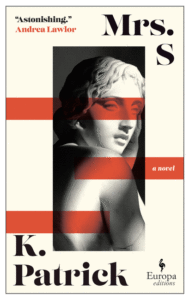
5. Mrs. S by K Patrick
(Europa Editions)
6 Rave • 3 Positive • 1 Mixed
Read an excerpt from Mrs. S here
“In Mrs. S, the debut novel by the Glasgow author K. Patrick, bodies exist as a site of ongoing construction. Perhaps this is because our protagonist does not know how she feels about the particular body that she inhabits. And the questions that crop up because of that unknowing make for an entirely captivating read … In due course the novel offers a steamy love story, and Patrick proves to be a deft hand at the erotic … I could wax on about the sensuality of Patrick’s narrative, how sometimes loneliness means gazing deeply into the well of your own self, wondering at the stranger who’s reflected back. But I’d rather leave it with the unanswered question. Change comes for us all, and that’s a beautiful, awesome thing. Save the knowledge for later.”
–Kristen Arnett (The New York Times Book Review)
Book Marks
Visit Book Marks, Lit Hub's home for book reviews, at https://bookmarks.reviews/ or on social media at @bookmarksreads.









